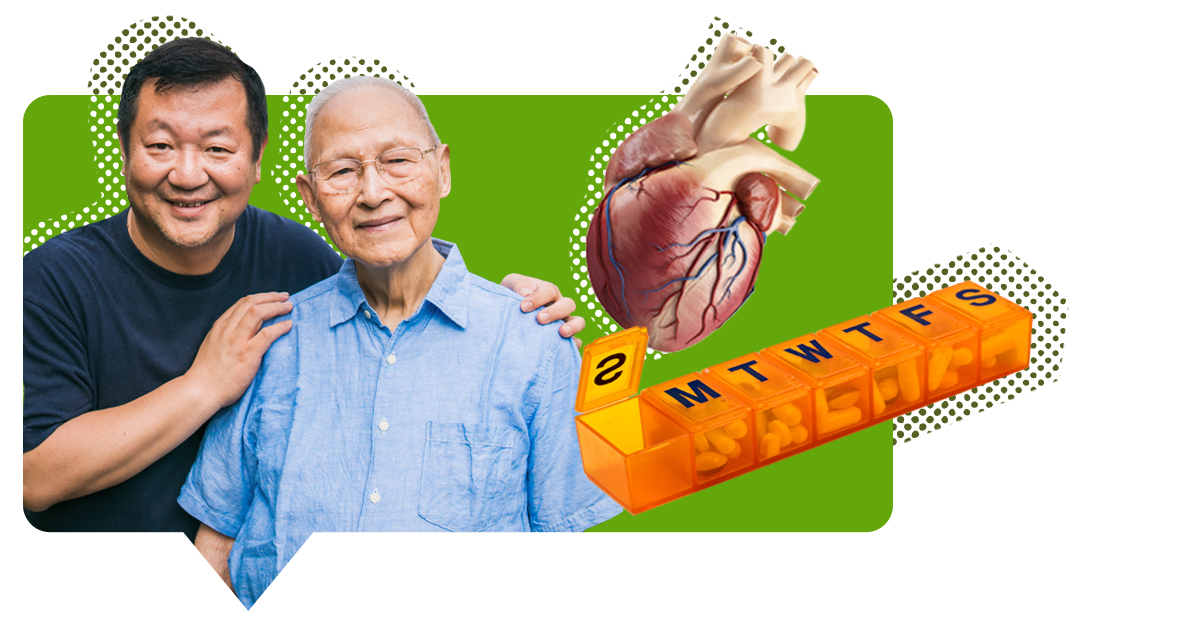
Dear Crossroads,
My uncle is living with congestive heart failure (CHF). Though he doesn’t complain often, I know how difficult it can be for him at times. I also know that, due to his stubborn nature, he won’t go out of his way to ask this himself. So, I thought I would take the initiative to find out myself: What are – if any – some easy lifestyle changes or “heart hacks” that can help him live with CHF?
To elaborate, I’m always finding articles on the internet about “simple lifestyle changes that will help your heart.” So I’m wondering if any of these tips and tricks will work for people like my uncle who are living with CHF. We already know about the common ones like eating less salt and quitting smoking, but I feel like there must be more we could be doing.
I know none of these tricks can entirely reverse CHF, but I need help coming to terms with my uncle’s condition and helping him decide on the proper next steps for managing his symptoms as best he can. My uncle, despite his stubbornness, has always been very caring about others. I’d love to return the favor by helping him learn how to live with CHF.
Sincerely,
A Hopeful Nephew
Dear Hopeful Nephew,
Thank you for reaching out. It’s admirable to want to help your loved ones – especially when they are living with CHF. While there are plenty of lifestyle changes your uncle can make, there are just as many that you – as a loved one – can adopt to help him better understand how to live with CHF.
While simple things like elevating his feet above the heart level and limiting salt in his diet will definitely benefit him, you being there to help him turn up his oxygen when he gets short of breath or reminding him to take his medication may be even more helpful.
Generally speaking, learning all you can about this disease will help you become even more understanding and patient when it comes to your uncle’s symptoms. This philosophy of listening to and prioritizing the patient’s needs and wishes is the same one that we practice in hospice and palliative care. We work every day to help educate loved ones and do what we can using our knowledge to help manage each patient’s condition.
While these tips and tricks can play a very useful role, keep in mind that palliative and – eventually – hospice care will ultimately be the best answer for congestive heart failure. Take a look at Crossroads’ HeartLink program, which is designed to be your partner in managing these CHF symptoms at home to avoid any return trips to the hospital. This program can help from early stages all the way to end-stage CHF.
In any case, my biggest piece of advice is: don’t overdo it. Acceptance of this disease is necessary on both ends — both from the patient and their family members. If he starts to feel out of breath, he needs to know not to push himself and to reach out for help when he needs it.
If there comes a day where your uncle’s CHF worsens and takes a toll on your ability to help him keep up, know that Crossroads Hospice & Palliative Care is always here to offer resources that will help you understand when we can intervene. Sometimes, taking care of your loved ones means handing the responsibility to others with more time, resources, and expertise to dedicate to them.
Sincerely,
Dr. Walter George
Senior Vice President, Physician Training & Services
Crossroads Hospice & Palliative Care
For more information on heart disease and hospice, give us a call at 888-564-3405
If you found this information helpful, please share it with your network and community.
Copyright © 2020 Crossroads Hospice & Palliative Care. All rights reserved.

